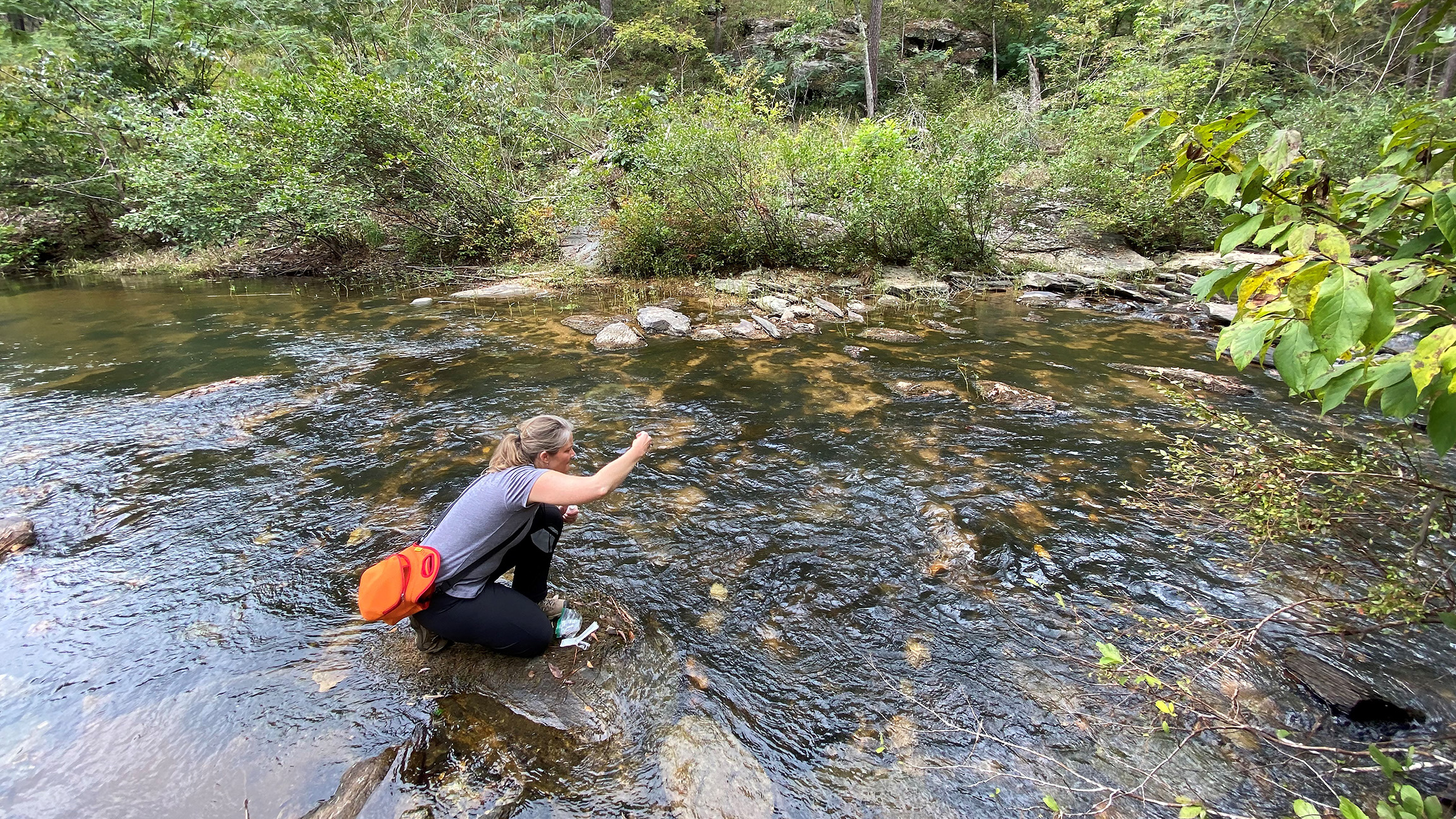WE SAT DOWN WITH AU’S MONA DOMINGUEZ, ALABAMA WATER WATCH PROGRAM DIRECTOR IN THE WATER RESOURCES CENTER.
Tell us about your background and current position.
I began working with the AWW Program in 2009, and have been the Program Director for Alabama Water Watch since 2017 and have been coordinating the 4-H AWW Program since about 2013. Before that, I was the AWW Volunteer Monitor Coordinator and Rock Creek Watershed Management Plan Coordinator. Through each of those roles and through other responsibilities I have with the Water Resources Center, I’ve gained many new skills, a plethora of knowledge regarding water science, restoration, policy, and youth development.
For my undergrad degree, I went to The University of the South in Sewanee, TN where I earned a B.A. in Anthropology with a Concentration in Environmental Studies. Afterwards, I worked in environmental education for several years, including a 2-and-a-half-year stint as a Community and Environmental Conservation volunteer with the U.S. Peace Corps in Panama.
I came to Auburn University in 2008 to pursue my Masters in Community Planning (MCP). During my second year of that program, I came across an announcement for an Internship with AWW to assist with a watershed management plan for the Smith Lake area. The experience with watershed planning I had through that internship became the focus of my MCP Synthesis Project. Specifically, I investigated the value of stakeholder involvement in the watershed planning process. Because we were able to secure grant funding from the AL Department of Environmental Management to support implementation of the Rock Creek Watershed Plan, the experience helped me land my fulltime position with AWW, which eventually became part of the Auburn University Water Resources Center.
My academic background is a little different that of most people who work in the water world, but I feel that it has served me incredibly well in my position leading AWW, which is a citizen science program. Being able to consider that we all have different lived experiences that contribute to diverse worldviews, encourages me to open my mind when considering ways to reach new audiences, address citizen concerns, and encourage collaboration to achieve solutions to water quality issues. We must figure out what is important to people before we can make water important to them.
It was an immense honor to be named Program Director for AWW as it is recognized on a national and even global scale as a leading volunteer water monitoring program. In the last thirty years, the program has certified nearly 9,000 citizens as water monitors who have collected about 107,000 water chemistry, bacteriological, and stream biomonitoring data records. Countless water quality success stories can be attributed to the powerful combination of citizen collected, credible water data and an increased understanding of linkages between land-based pollution and water quality, which is at the heart of AWW’s training materials and education strategies. Since establishing the 4-H AWW Program, close to 40,000 students in Alabama have been involved. It is exciting to think about how the positive water science experiences youth are having because of 4-H AWW is impacting their futures and the future of water resources in Alabama.
Responsibilities associated with my position are quite varied, and I do believe that variety is the spice of life! I’ve never been bored since joining the team 13 years ago. I have the opportunity to develop training materials and curriculum, teach adults and youth to conduct water monitoring, write grants to support our work, plan events of all shapes and sizes, build new partnerships with other institutions and organizations, problem solve, analyze and interpret data, communicate water science to people all over the state, and let’s don’t forget – play in the creek (although not as often as I would like)!
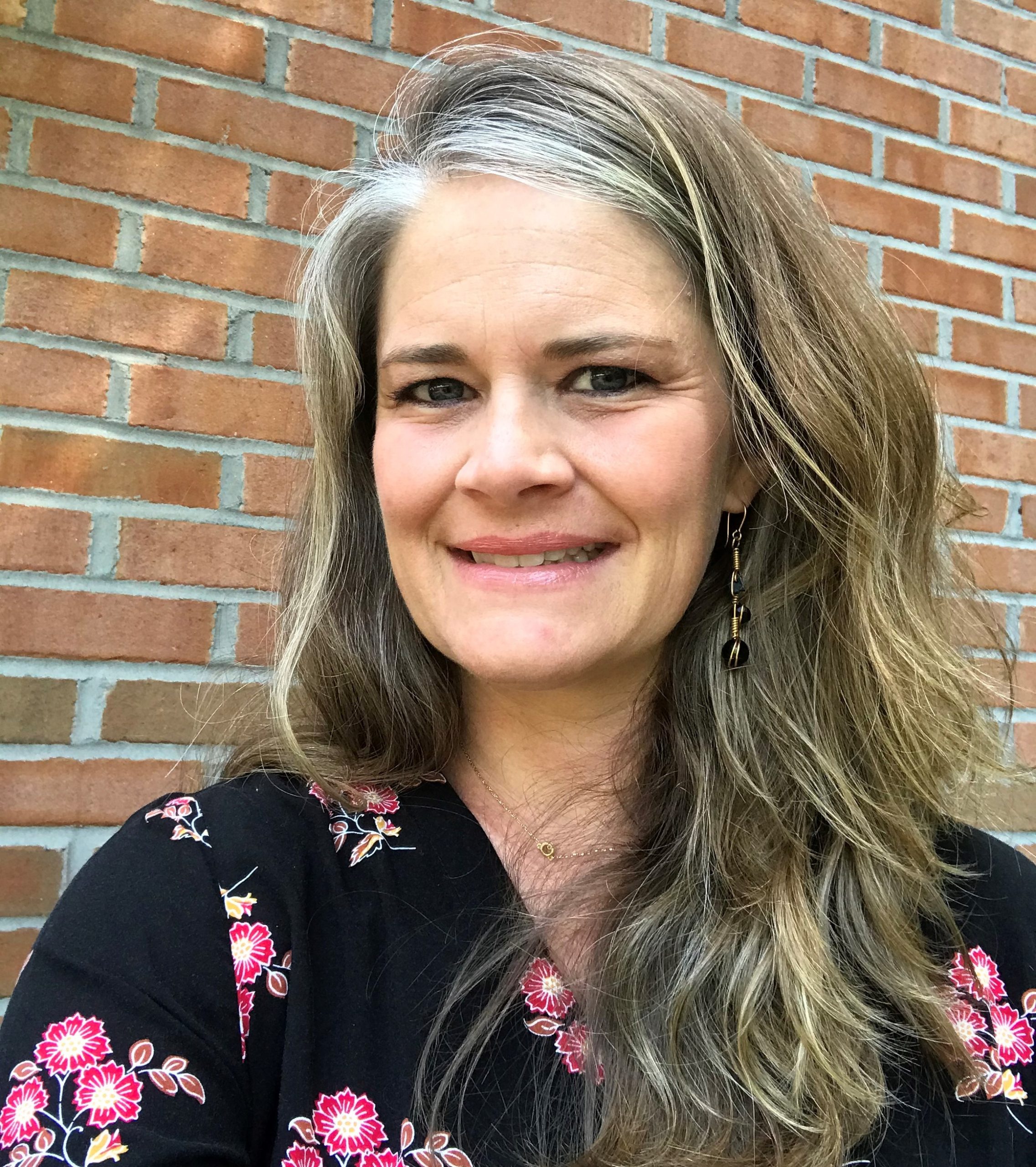
Mona Dominguez of the Auburn University Water Resources Center.
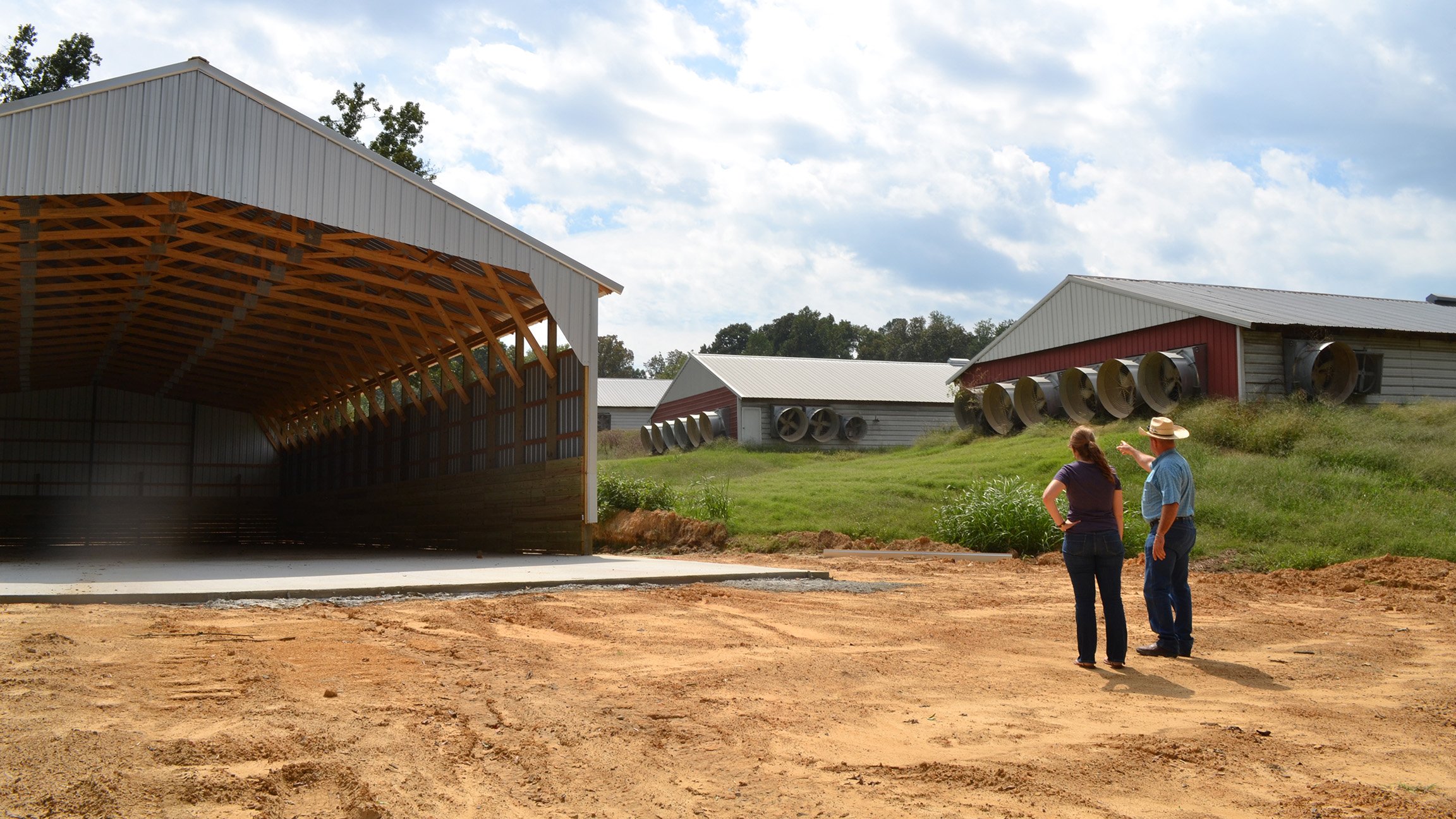
Mona looking at agricultural Best Management Practices (BMPs) installed as part of Rock Creek WMP. Photo Credit: Bill Deutsch
Describe your upcoming outreach activities and projects with the AUWRC.
AWW is moving into the second year of utilizing a hybrid training model (including online and in-person components). We are posting new training opportunities for 2023 and can’t wait to meet our next batch of water watchers. If you know of someone who is interested in getting certified, please share our Events page with them.
I hope everyone knows by now that the AUWRC believes in collaboration. For AWW, partnering helps us to reach new audiences for trainings, and often result in opportunities to provide volunteers with monitoring materials. Collaborators include cities, agencies, nonprofits, and other universities. AWW has several new and ongoing partnerships for the coming year.
We will continue to work with the USDA Forest Service to support the water monitoring network we established through a USDA CitSci Fund project. Just in the past year, project volunteers contributed a total of 1,039 volunteer hours, valued at $31,118 which was a 238% increase from 2021. The sites they monitor are in priority watersheds on the National Forests of Alabama, which were identified through the USDA Forest Service’s Watershed Condition Framework which establishes a consistent, comparable, and credible process for improving the health of watersheds on national forests.
Our February workshop will be supported in part by a NFWF Five Star Restoration Project that was awarded to the City of Auburn. We hope to recruit volunteers who can help monitor the effectiveness of a stream restoration project they will install near the wastewater treatment plant on Parkerson Mill Creek in Auburn. You can read more about that project in this press release.
In March, we will conduct water monitoring trainings at the Birmingham Zoo. One of our newest AWW Trainers is the Zoo’s Education Coordinator. This training is part of an NSF funded project being led by the Krueger-Hadfield Evolutionary Ecology Lab at the University of Alabama in Birmingham that is focused on freshwater red algae. AWW volunteer monitors can play an important role in identifying habitat of freshwater red algae throughout the state just by submitting photos of their stream sites to the Lab (anyone can do so by following the project instructions). They will also learn how to collect freshwater red algae samples for the project in addition to their certification as AWW monitors.
Several of the 2023 trainings will be part of our continued work with our WRC sister program, Alabama Watershed Stewards. We are working to prepare communities to collect data about their watersheds, many of which include impaired waterbodies that are on the ADEM 303d list. The overarching goal is to encourage development of watershed management plans that address the impairments.
In early 2023, we will begin recruiting teachers to participate in a second phase of our NOAA Bays and Watershed Education Training (B-WET) Program funded project that is building capacity within the 4-H Alabama Water Watch Program to provide educators with the training, materials, and support needed to engage students (ages 9 – 18) with Meaningful Watershed Educational Experiences focused on understanding, detecting, and mitigating pathogen pollution in local waters. Teachers who participate will be supported during the 2023-2024 school year to conduct bacteriological monitoring of local waterways with their students. Read more in 4-H Alabama Water Watch Prepares Students to Explore and Mitigate Pathogen Pollution
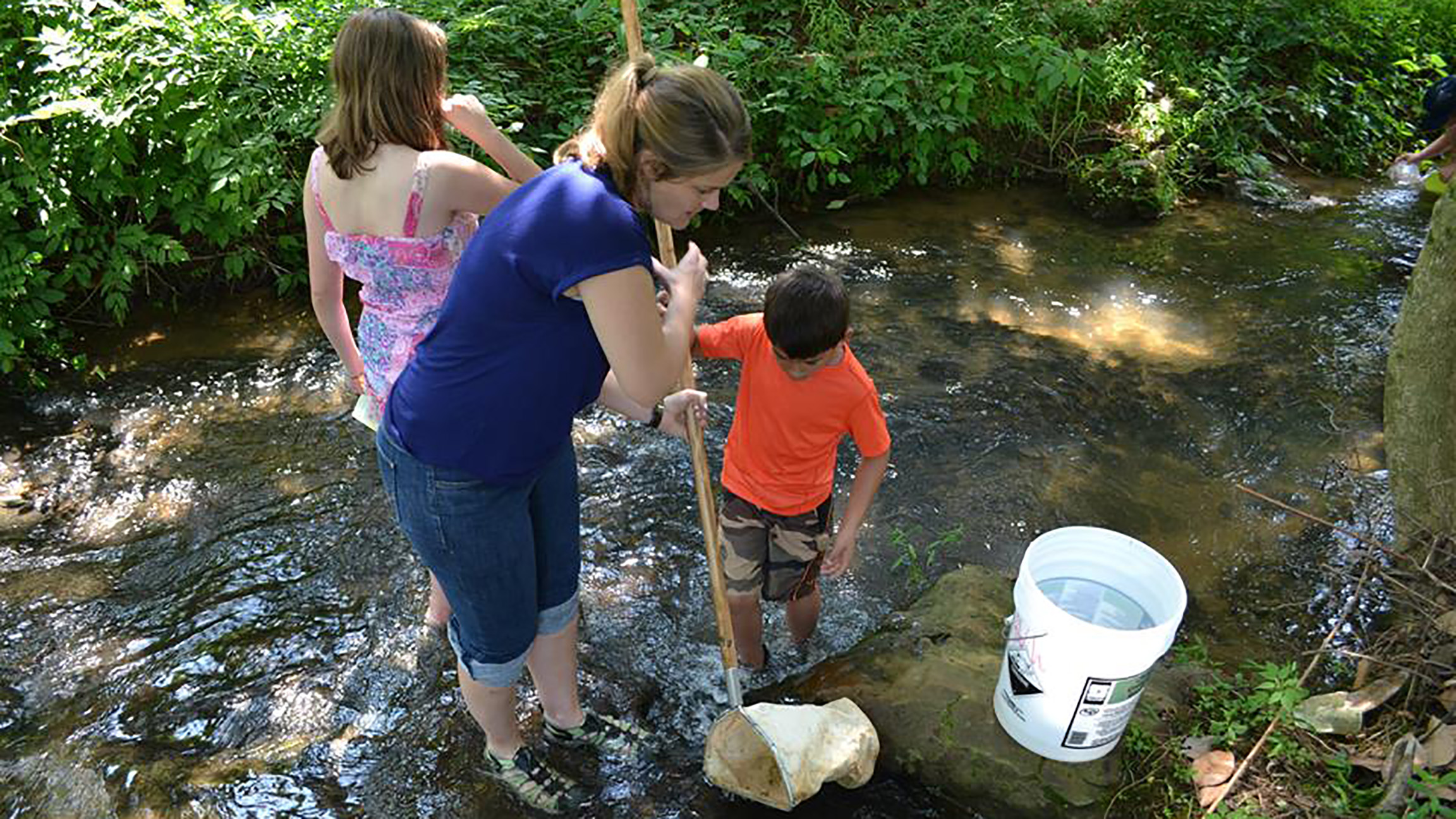
In your view, what are future priorities for Alabama water resources outreach, education, and/or research?
Finding ways to make our education and outreach programs more diverse, equitable, and inclusive should be a major priority for every organization right now, including those focused on water resources. We must be willing to adapt and change our programs in creative ways to respond to the needs of different communities, keep people engaged, and bring in new audiences.
Mona teaches stream biomonitoring during a day camp in the early days of 4-H AWW. Photo Credit: Mirandi Watson
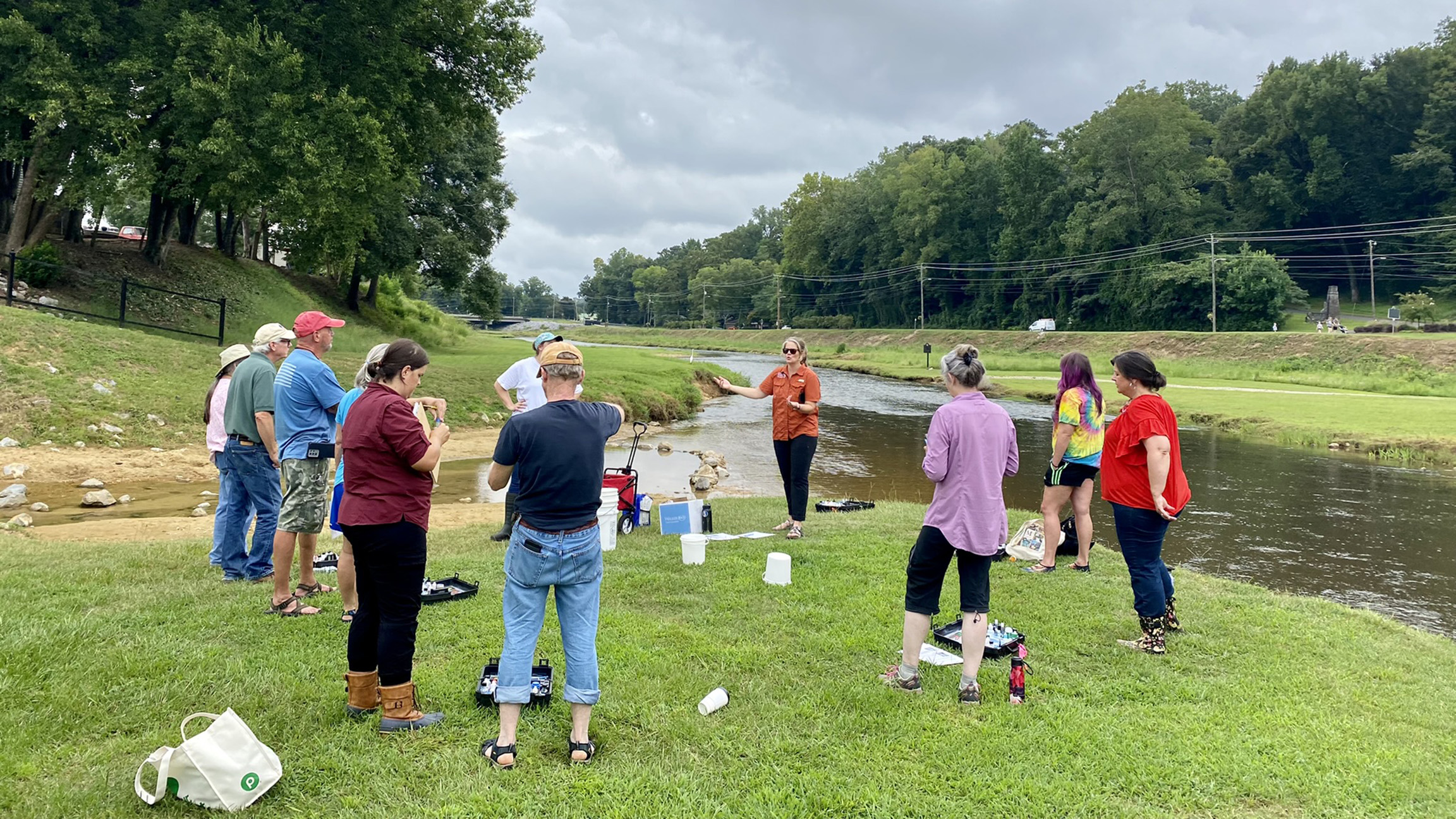
Mona teaching an AWW workshop on Autauga Creek. Photo Credit: Sydney Zinner
Word on the street is you’re back in school. Tell us about your PhD plans.
Yes, I have just recently started a PhD program in the College of Forestry, Wildlife and Environment with Dr. Kelly Dunning and her Conservation Governance Lab. I am very excited about this opportunity that will allow me conduct research focused on community-based water monitoring, including the AWW Program, and how it can influence how water resources are managed. I will keep you posted as things develop!
In your career, what is the best advice you’ve been given?
I have had a lot of good advice throughout my career, but I frequently come back to something Dr. Bill Deutsch told me years ago. Bill, who is now a Research Fellow Emeritus with AU, started the AWW Program and hired me. I can’t remember the exact circumstance when he gave me the advice, but I am sure that I was stressed about a project not going as planned. I was doing everything I could, but worrying it would all fall apart, and in the process maybe I was falling apart, ha. He told me to “be like a ping pong ball on the ocean”. Storms come, big waves roll, but they can’t sink you. Basically, no matter how big the problem is, how stressful things get, how hard of a challenge you’re faced with, keep going, keep calm, stay focused on your goal. You’ll stay afloat and eventually make it to the shore. There are many days that I have to close my eyes and “be” the ping pong ball on the ocean to make it through a challenge. I highly recommend that you try it out.
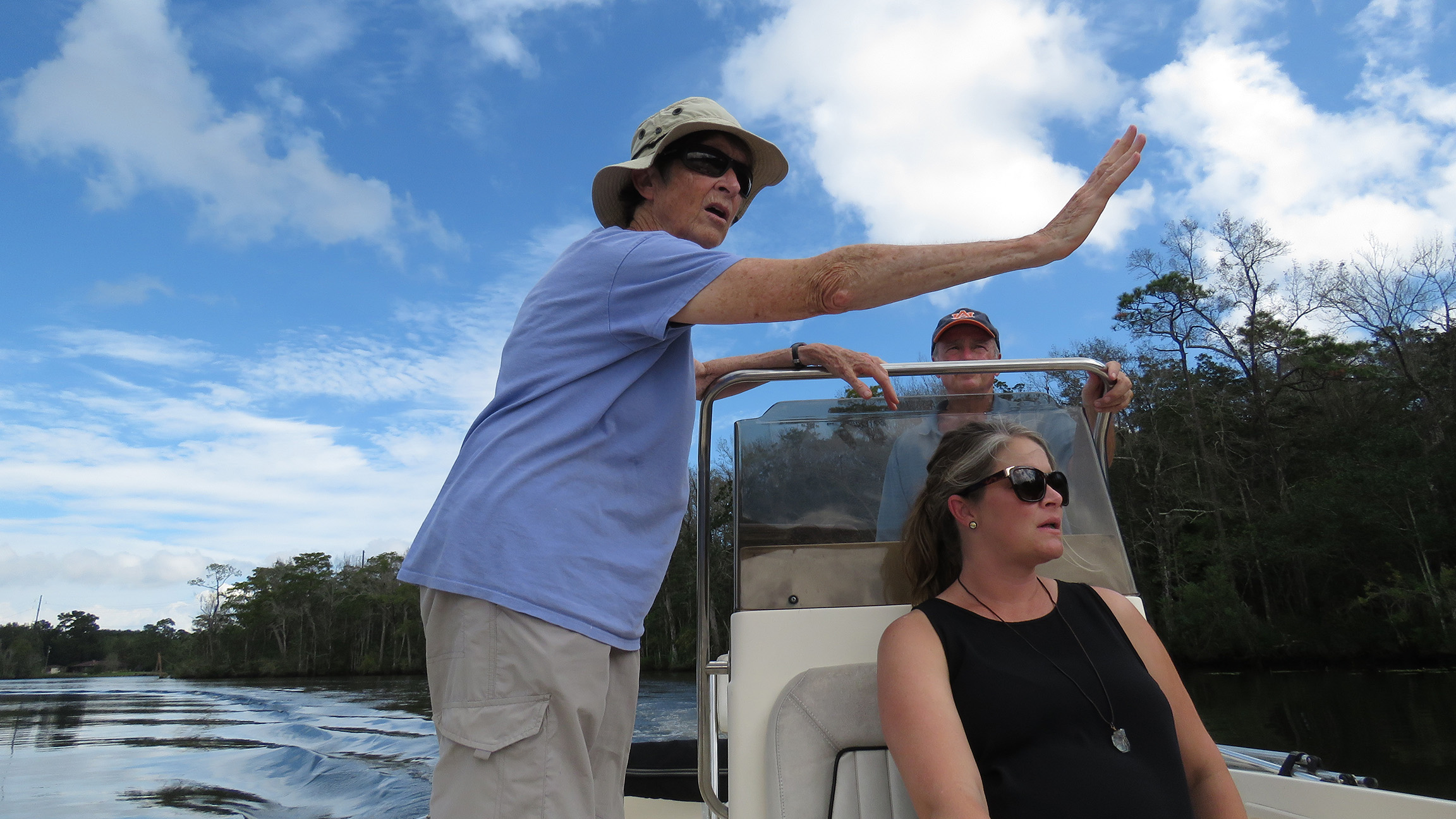
Mona visiting with AWW volunteers of Dog River Clearwater Revival. Photo Credit: Sydney Zinner
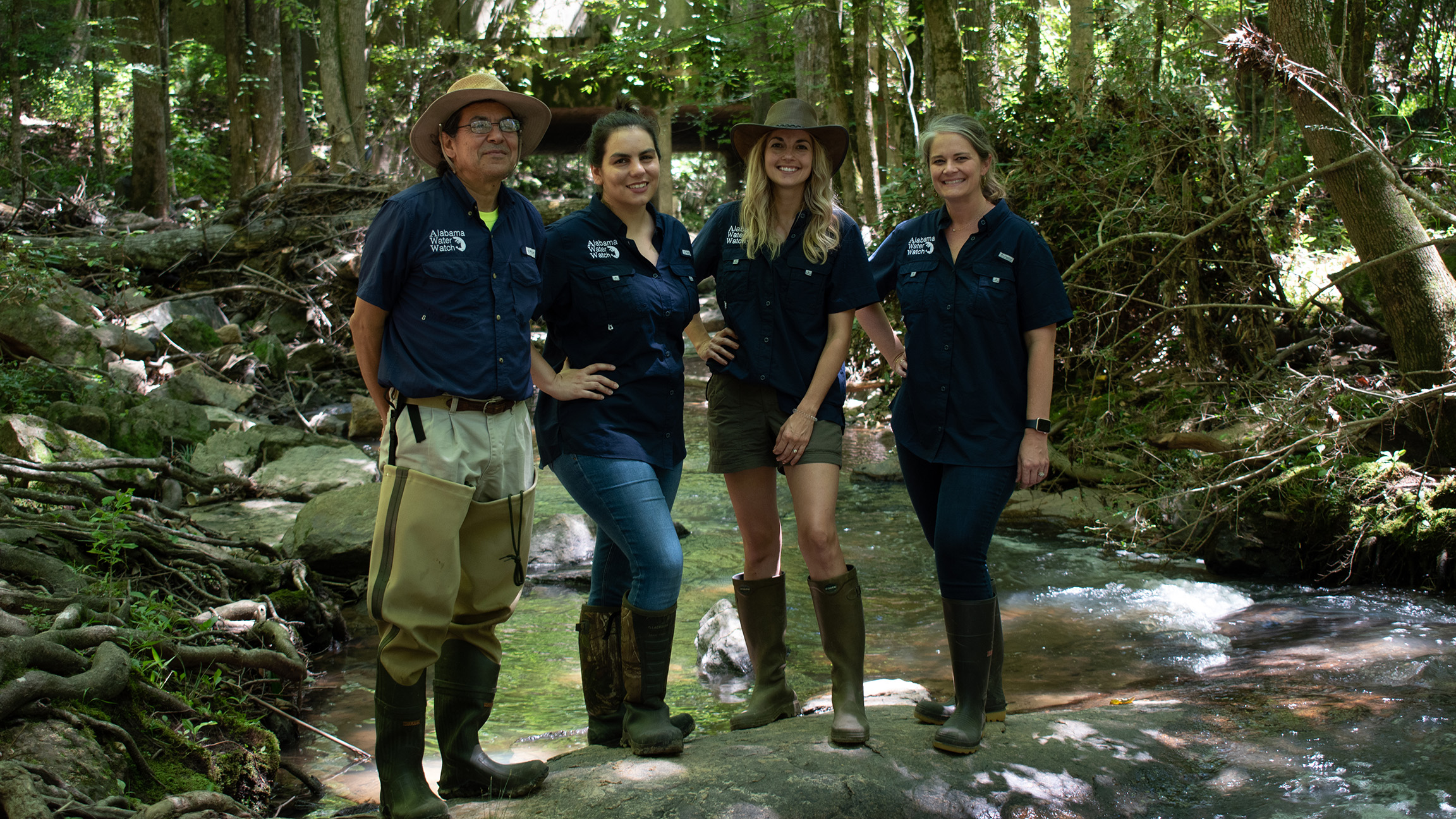
Mona with AWW colleagues. Photo Credit: Jess Lingle
What is a book that you think everyone should read and why?
I recently read the book Dare to Lead by Brené Brown. I am pretty sure everyone in the WRC has already heard me talk about it because when I am excited about something I’m reading I tend to find ways to bring it up often. I think everyone should read this book because to find solutions to current and future water issues, we must be good leaders. Whether we are leading a project team, a lab, a student club, a community organization, an agency, or hold a governmental position, we can all gain insight from the type of wholehearted leadership she describes. The book also includes very practical strategies for beginning a journey towards daring leadership.

